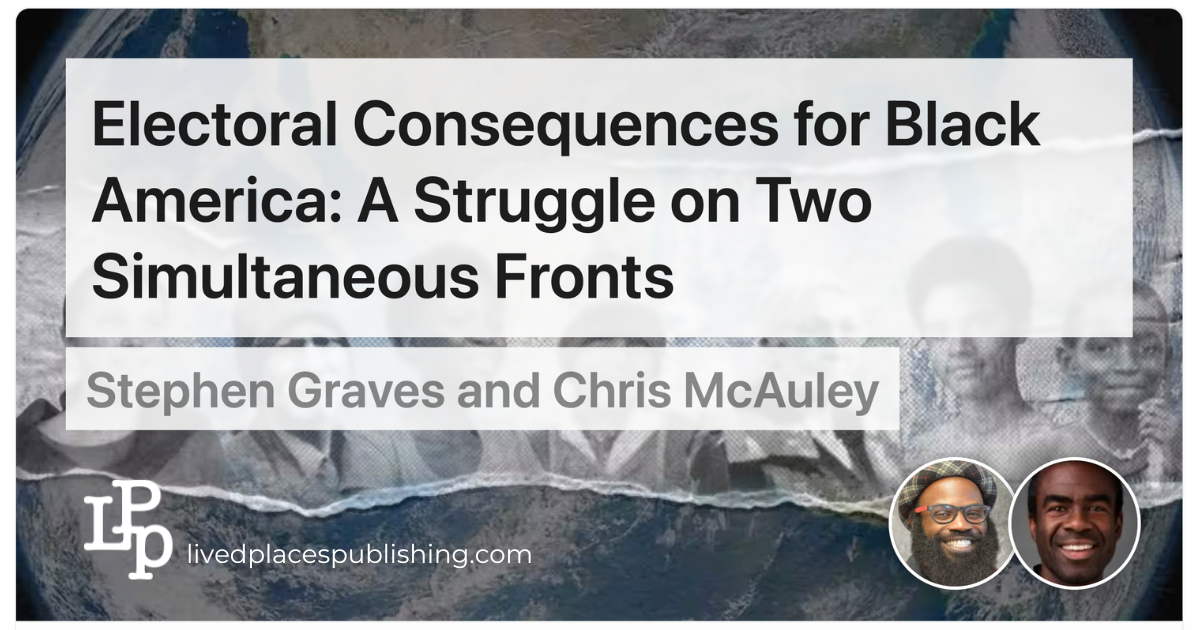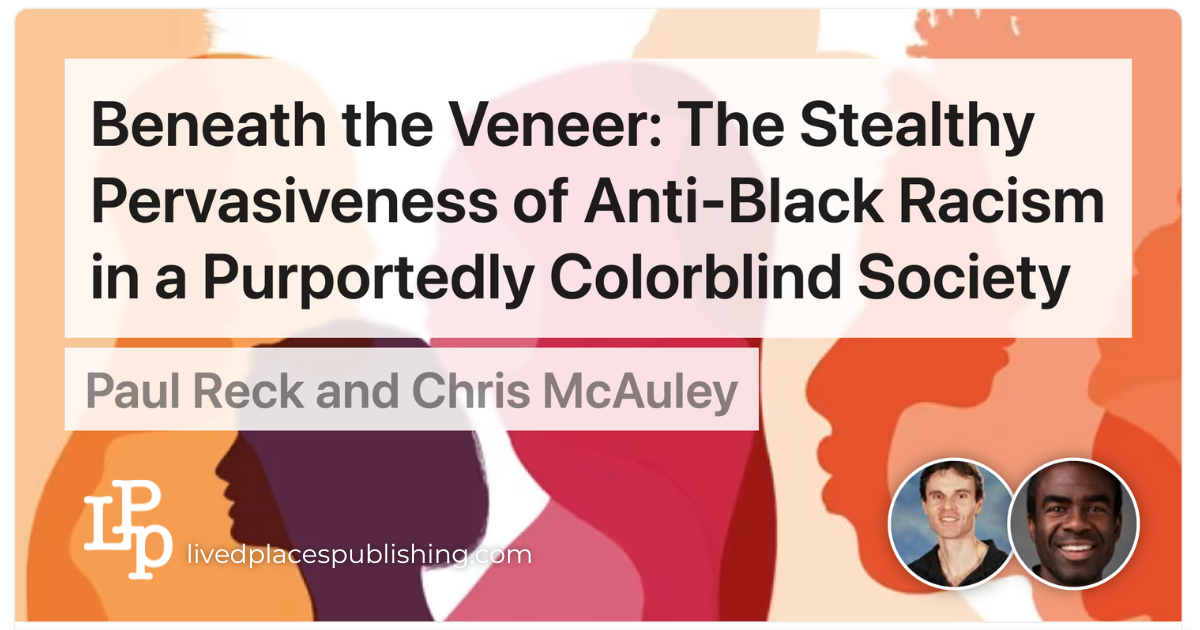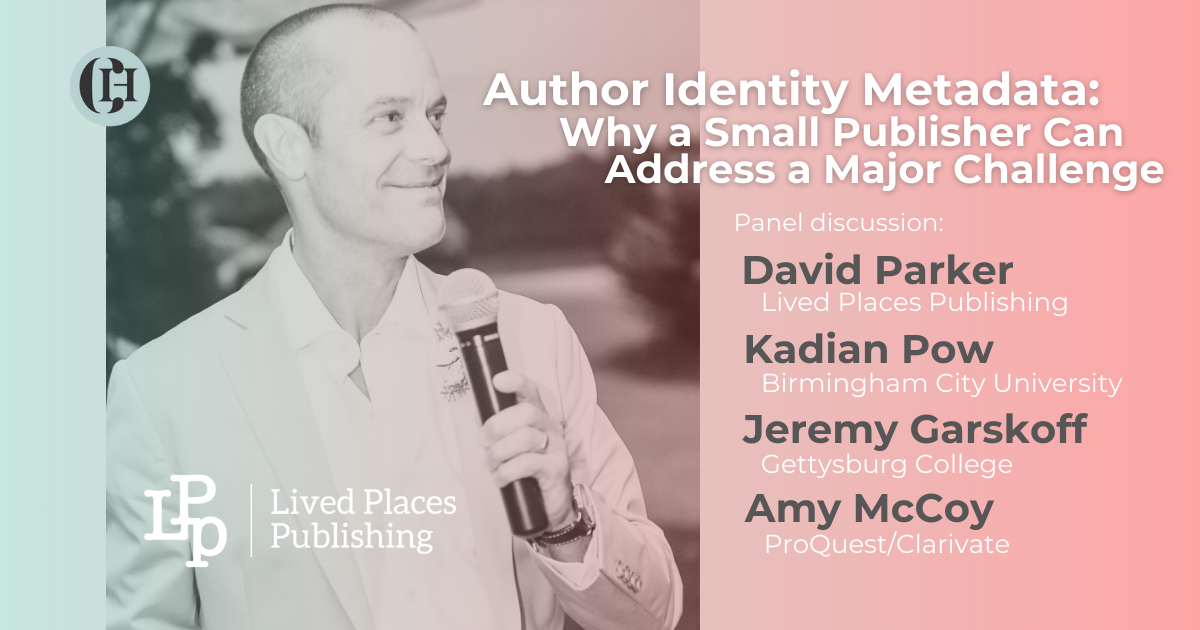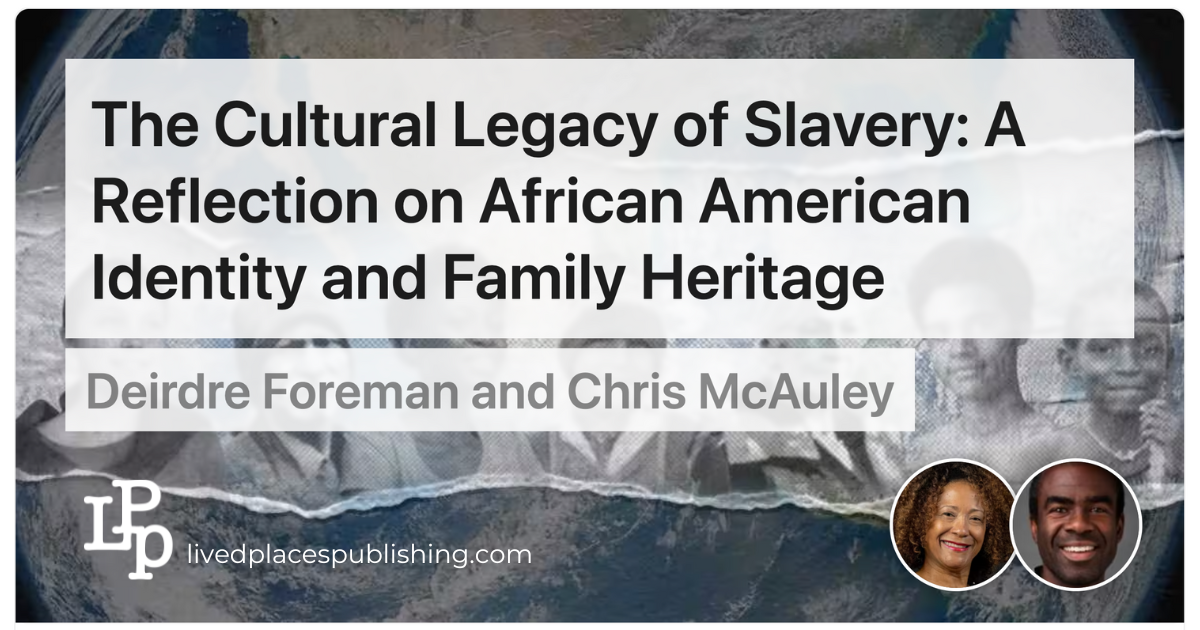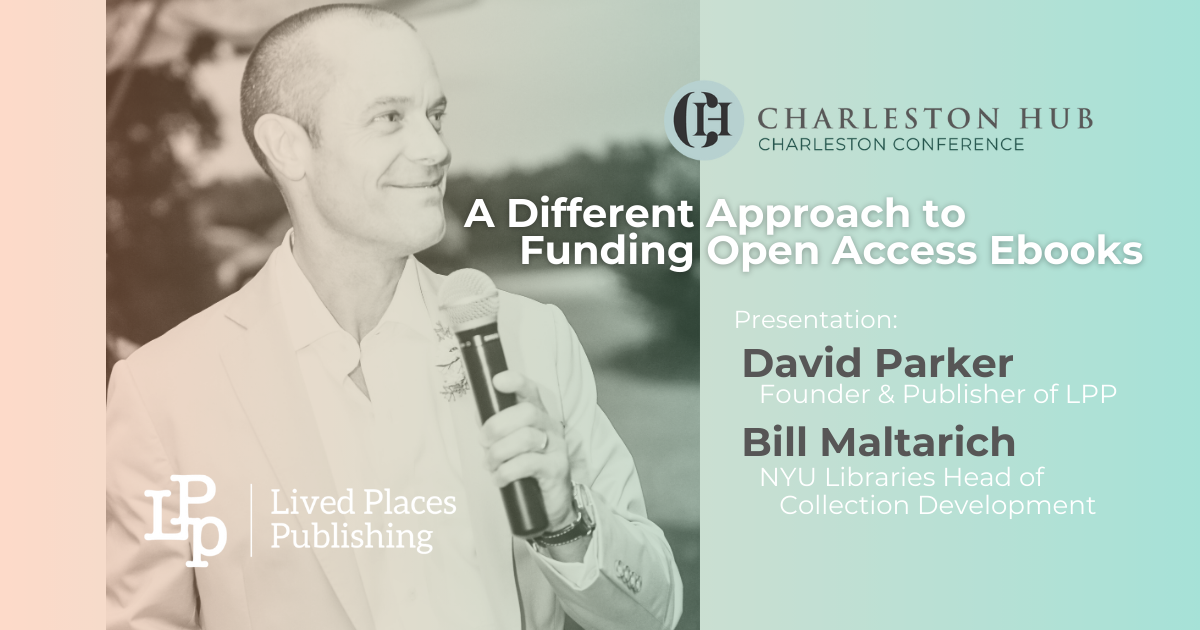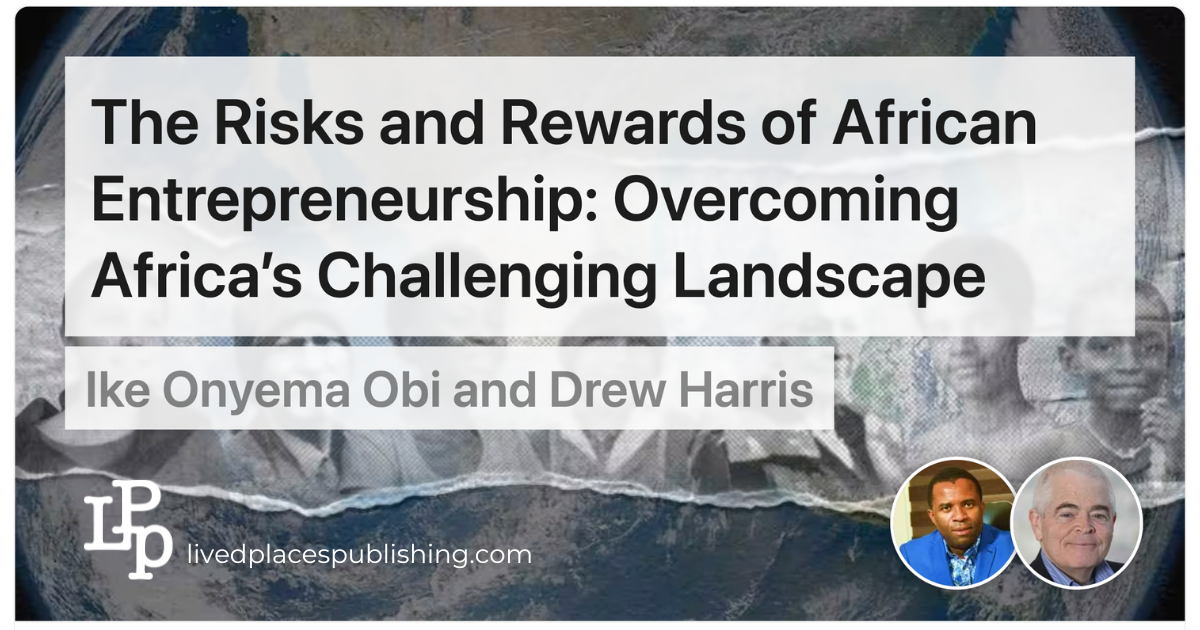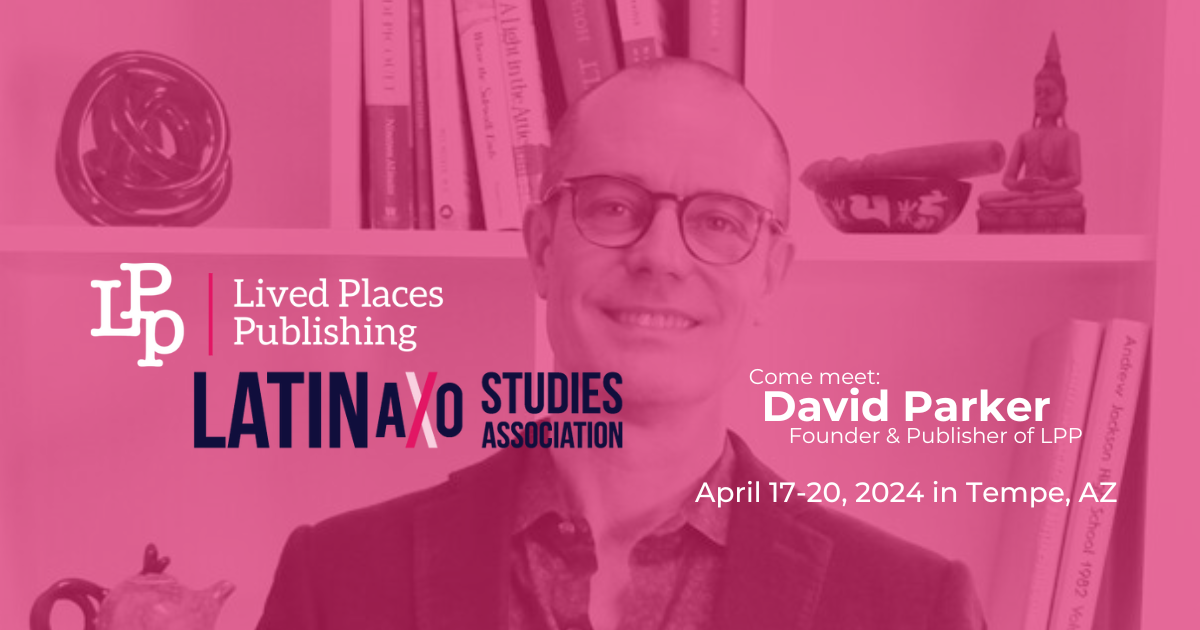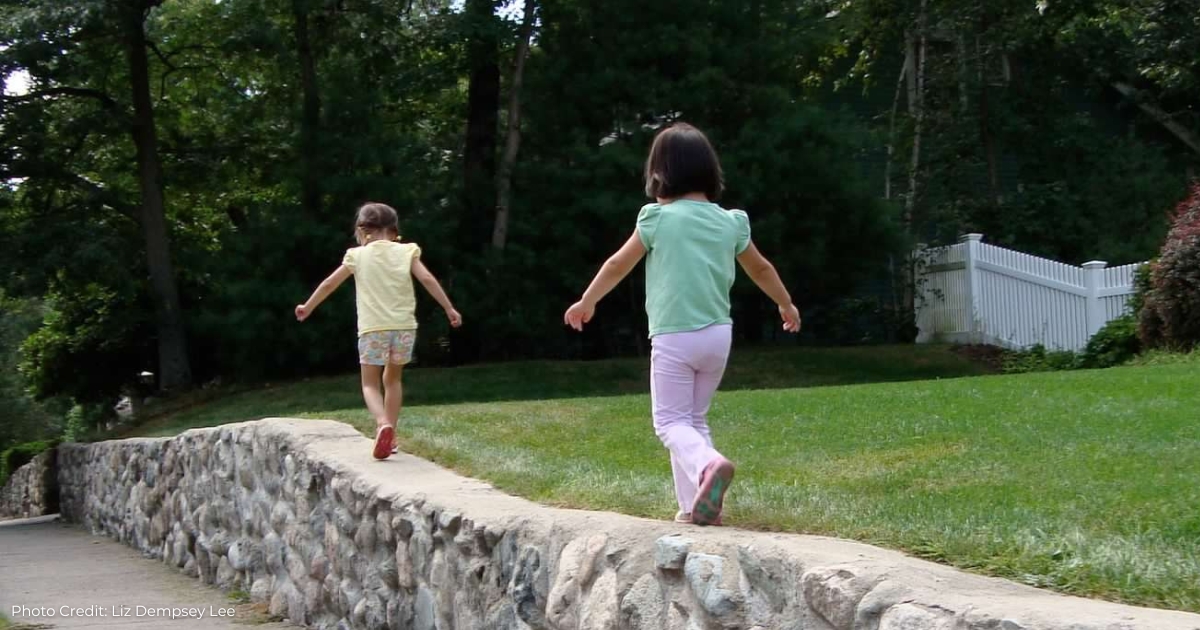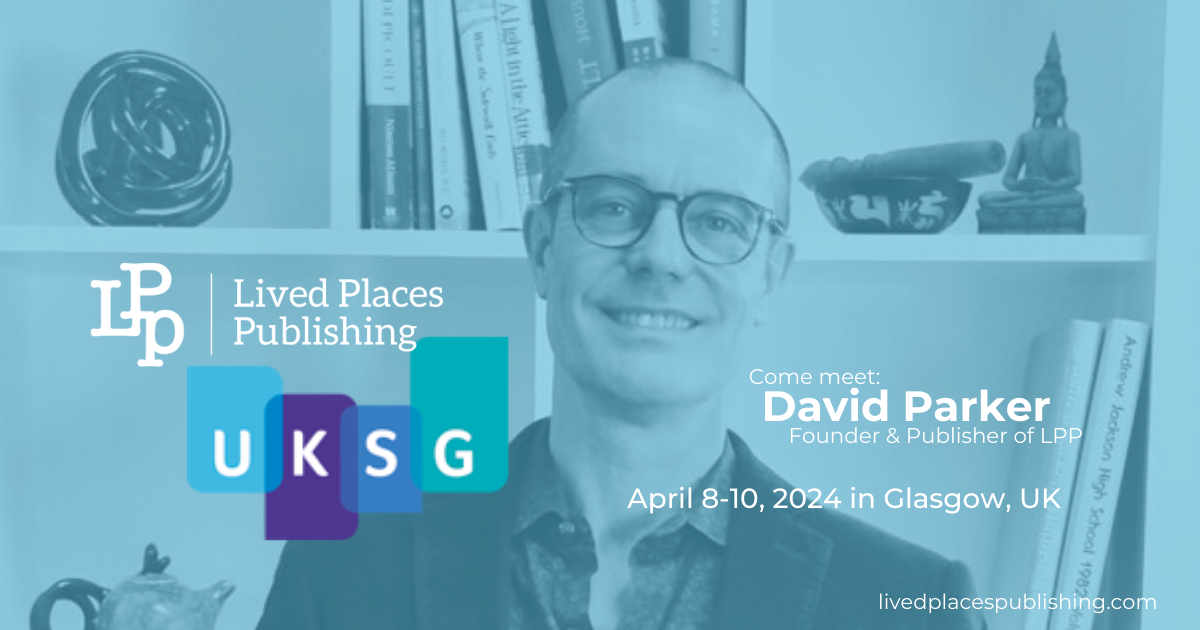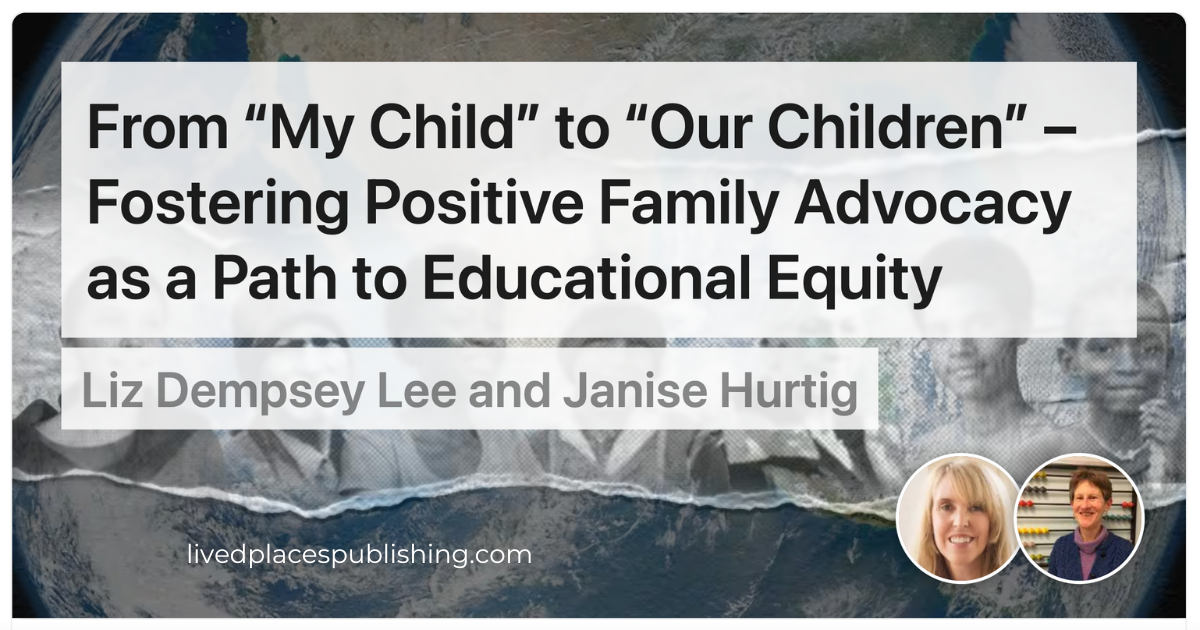Electoral Consequences for Black America: A Struggle on Two Simultaneous Fronts
Black Americans are uniquely placed within the phenomenon of American elections. In this conversation between Chris McAuley, Black Studies Collection Editor at Lived Places Publishing and Stephen Graves, author of At War With Politics: A Journey from Traditional Political Science to Black Politics, they examine the upcoming U.S. presidential election through the lens of Black politics.

